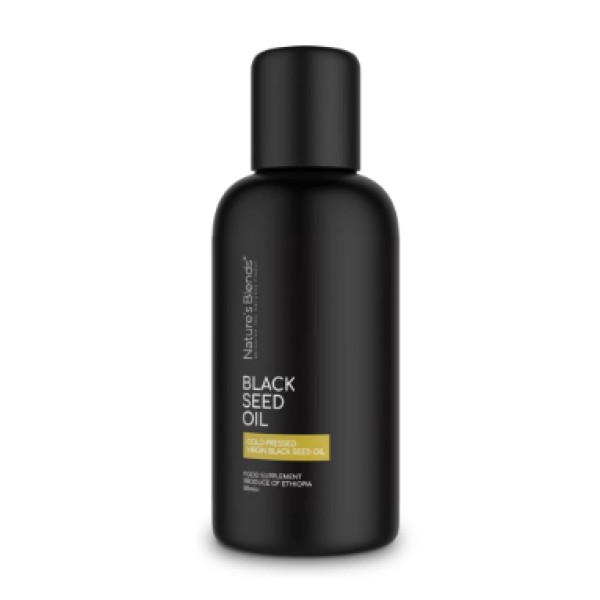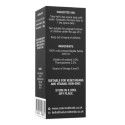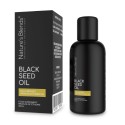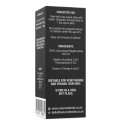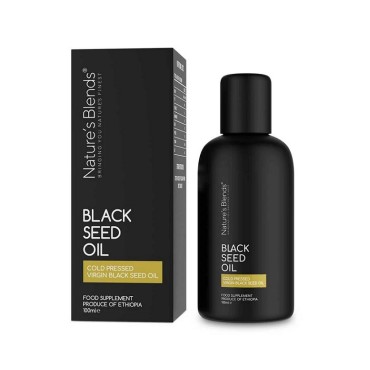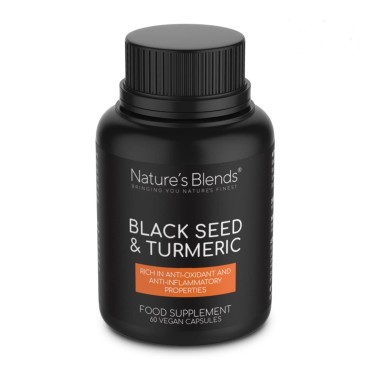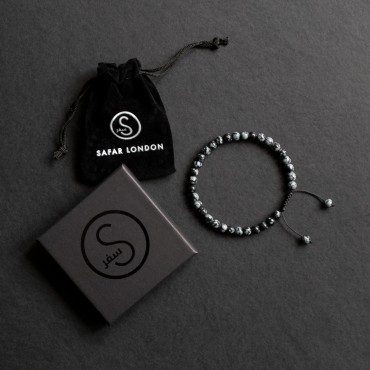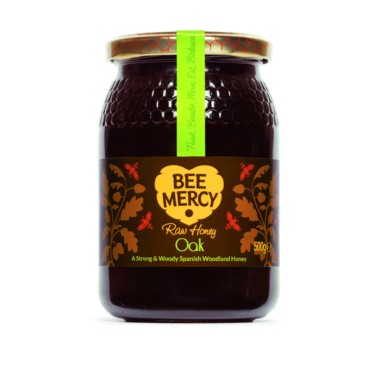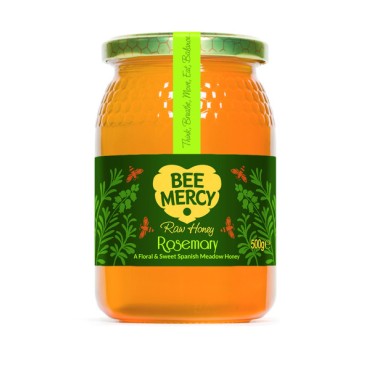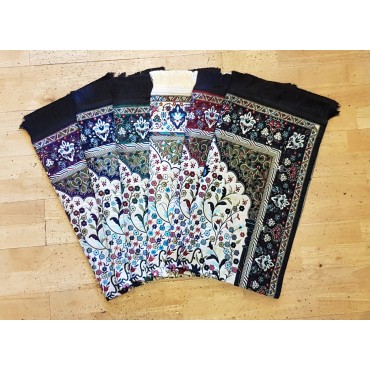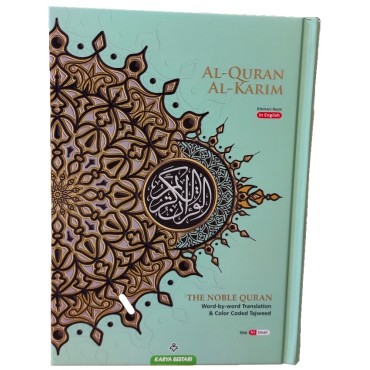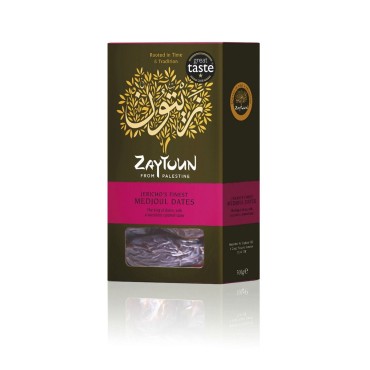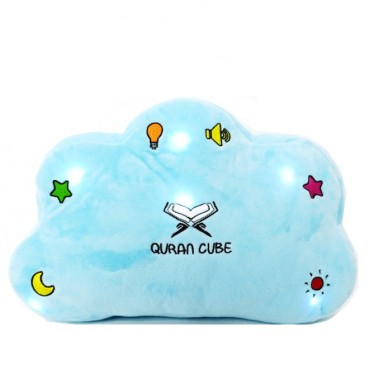Natures Blends
With Black Seed oil making its emergence in the West, there have been hundreds of comprehensive research studies done in order to understand the powerful healing properties of this amazing seed.
Our Black Seed line is sourced from the fertile warm lands of Ethiopia. Ethiopia is known for the most potent Black Seed oil owing to the climate and growing conditions. We also cold press our seeds and only once without any added heat, additives, or preservatives. We preserve the purest form of virgin Black Seed oil to reach the highest level of volatility at 3.9%.
Our Black Seed has also been lab tested for its Thymoquinone (TQ) level - the ingredient responsible for the healing effects - our oil was given a 2.5% TQ percentage. Typically Black Seed oil found on the market has a TQ level of less than 0.5%. The certificate can be found below. We stand by the quality of our oil and are proud to offer the highest purity standard of authentic Ethiopian Black Seed oil on the market.
What is the Black Seed?
Its botanical name is Nigella sativa. It is believed to be indigenous to the Mediterranean region but has been cultivated into other parts of the world including the Arabian peninsula, northern Africa and parts of Asia.
The Black seeds originate from the common fennel flower plant (Nigella sativa) of the buttercup (Ranunculaceae) family. It is sometimes mistakenly confused with the fennel herb plant (Foeniculum vulgare).
The plant has finely divided foliage and pale bluish purple or white flowers. The stalk of the plant reaches a height of twelve to eighteen inches as its fruit, the black seed, matures.
The Black seeds are small black grains with a rough surface and an oily white interior, similar to onion seeds. The seeds have little bouquet, though when rubbed, their aroma resembles oregano. They have a slightly bitter, peppery flavor and a crunchy texture.
The Black Seed is also known by other names, varying between places. Some call it black caraway, others call it black cumin, onion seeds or even coriander seeds. The plant has no relation to the common kitchen herb, cumin.
Muslims use of the Black Seed:
Muslims have been using and promoting the use of the Black Seed for hundreds of years, and hundreds of articles have been written about it. The Black Seed has also been in use worldwide for over 3000 years. It is not only a prophetic herb, but it also holds a unique place in the medicine of the Prophet (May Allah exalt his mention).
Abu Hurayrah, may Allah be pleased with him, narrated that the Prophet (May Allah exalt his mention) said:
"use this Black Seed regularly, because it is a cure for every disease, except death"
[Al-Bukhari and Muslim]
(5060414220338/17131)
With Black Seed oil making its emergence in the West, there have been hundreds of comprehensive research studies done in order to understand the powerful healing properties of this amazing seed.
Our Black Seed line is sourced from the fertile warm lands of Ethiopia. Ethiopia is known for the most potent Black Seed oil owing to the climate and growing conditions. We also cold press our seeds and only once without any added heat, additives, or preservatives. We preserve the purest form of virgin Black Seed oil to reach the highest level of volatility at 3.9%.
Our Black Seed has also been lab tested for its Thymoquinone (TQ) level - the ingredient responsible for the healing effects - our oil was given a 2.5% TQ percentage. Typically Black Seed oil found on the market has a TQ level of less than 0.5%. The certificate can be found below. We stand by the quality of our oil and are proud to offer the highest purity standard of authentic Ethiopian Black Seed oil on the market.
What is the Black Seed?
Its botanical name is Nigella sativa. It is believed to be indigenous to the Mediterranean region but has been cultivated into other parts of the world including the Arabian peninsula, northern Africa and parts of Asia.
The Black seeds originate from the common fennel flower plant (Nigella sativa) of the buttercup (Ranunculaceae) family. It is sometimes mistakenly confused with the fennel herb plant (Foeniculum vulgare).
The plant has finely divided foliage and pale bluish purple or white flowers. The stalk of the plant reaches a height of twelve to eighteen inches as its fruit, the black seed, matures.
The Black seeds are small black grains with a rough surface and an oily white interior, similar to onion seeds. The seeds have little bouquet, though when rubbed, their aroma resembles oregano. They have a slightly bitter, peppery flavor and a crunchy texture.
The Black Seed is also known by other names, varying between places. Some call it black caraway, others call it black cumin, onion seeds or even coriander seeds. The plant has no relation to the common kitchen herb, cumin.
Muslims use of the Black Seed:
Muslims have been using and promoting the use of the Black Seed for hundreds of years, and hundreds of articles have been written about it. The Black Seed has also been in use worldwide for over 3000 years. It is not only a prophetic herb, but it also holds a unique place in the medicine of the Prophet (May Allah exalt his mention).
Abu Hurayrah, may Allah be pleased with him, narrated that the Prophet (May Allah exalt his mention) said:
"use this Black Seed regularly, because it is a cure for every disease, except death"
[Al-Bukhari and Muslim]
(5060414220338/17131)

